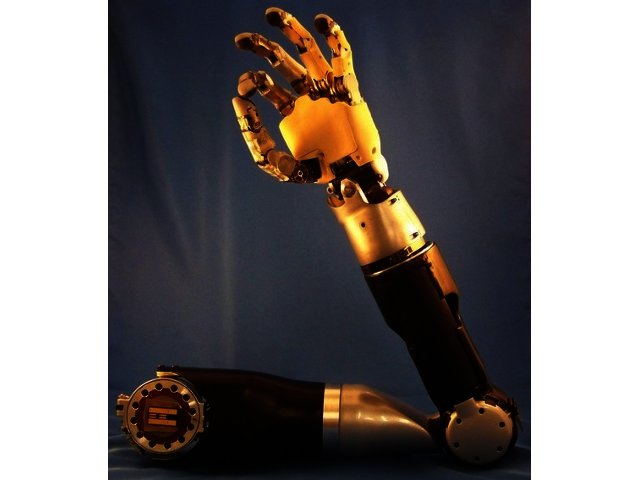Mind controlled robotic limbs to be tested
By Johan Keyter 16 July 2010 | Categories: news
According to Wired, Pentagon scientists from its Darpa research and development agency are close to testing though-controlled prosthetics on human test subjects.
This will be the first time that prosthetic limbs will be physically connected to a human patient’s brain via a neural interface.
A team of scientists based at Johns Hopkins University have received a $34.5 million contract from Darpa to manage the next stage of the project.
The Modular Prosthetic Limb (MPL) will be fully controlled by the test subject’s thoughts. The arm offers 22 degrees of motion, including independent movement for each finger and weighs about the same as a normal human arm.
The device will be controlled via micro-arrays implanted into the brain that records signals and then transmits them to the artificial arm.
"The goal is to enable the user to more effectively control movements to perform everyday tasks, such as picking up and holding a cup of coffee," Michael McLoughlin, the project's program manager, says.
Within two years the team of scientists hope to test the device in five patients while also hoping to expand prosthetic abilities to incorporate pressure and touch.
While this is no doubt wonderful news for amputees and aspiring cyborgs worldwide, the technology still faces some serious hurdles, the two-year lifespan of the neural recording devices being the most notable.
Most Read Articles

Have Your Say
What new tech or developments are you most anticipating this year?



